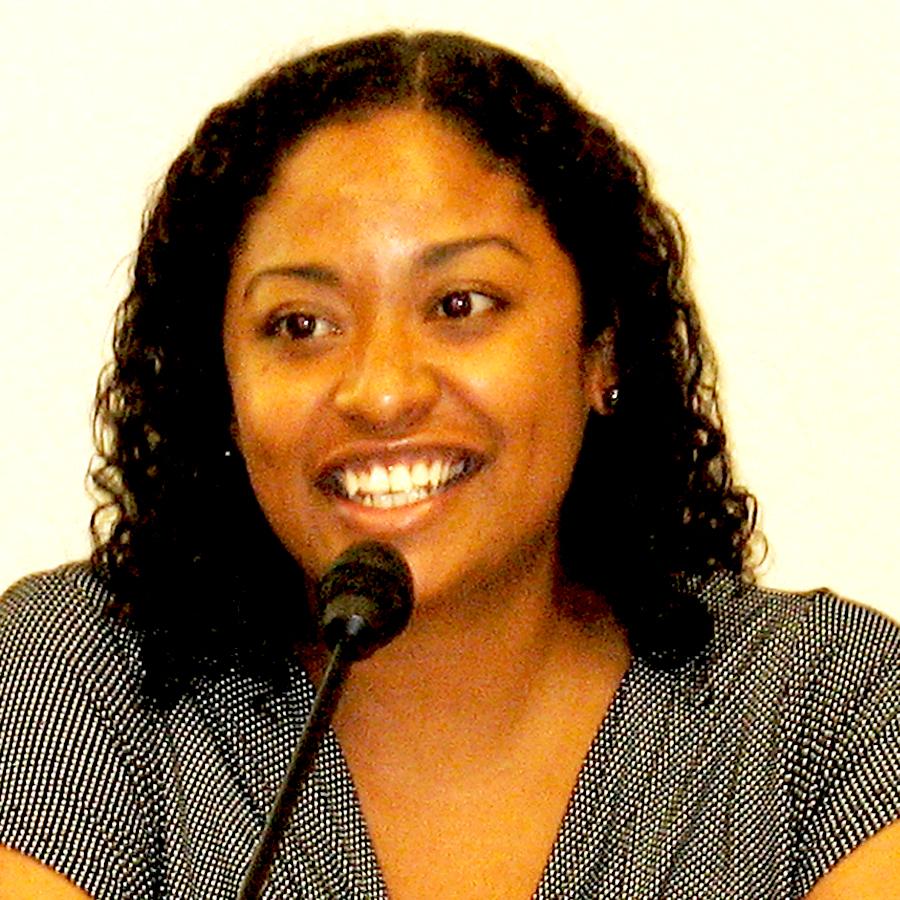 Note: This is the written testimony of Jihan Gearon, a witness in a May 12 ad-hoc hearing supported by the Congressional Progressive Caucus. The event was convened by the Institute for Policy Studies and the Inter Alliance Dialogue, a coalition of human rights organizations, to amplify the voices of those most hurt by the economic crisis.
Note: This is the written testimony of Jihan Gearon, a witness in a May 12 ad-hoc hearing supported by the Congressional Progressive Caucus. The event was convened by the Institute for Policy Studies and the Inter Alliance Dialogue, a coalition of human rights organizations, to amplify the voices of those most hurt by the economic crisis.
Ya’at’eeh. Shi ei Jihan Gearon yinishye. Todichiinii nishli doo naakai tlizhini bashishchiin. Tlashchi’i dashicheii doo naakai tlizhini dashinali. Tsehootsooidee naasha.
Good morning. My name is Jihan Gearon and I just introduced myself to you in my own language. I am Navajo on my mother’s side and African-American on my father’s side. I come from Fort Defiance, Arizona, which is on the eastern side of the Navajo Nation.
I am the Native Energy Organizer for the Indigenous Environmental Network. And we are members of the Grassroots Global Justice Alliance, an alliance of 60 U.S. based grassroots groups organizing to build an agenda for power for working people, making connections between the local and regional issues we work on and the global context.
I am here to talk to you today about environmental and climate justice.
As I said, I come from the Navajo Nation. In my home community, our number one source of income comes from coal mining. Growing up there, I thought of coal mining as a part of our culture as many do, but now that I’m older and have seen what the fossil fuel industry has done to us, I know better.
The fossil fuel regime has left us with nothing more than contaminated land, depleted and polluted water, polluted air, and poisoned people. Our leaders have been convinced that they must sell our resources and land to progress. And because our culture is so dependent on our relationship with the land we have ultimately become economically dependent on our own cultural destruction.
And I know and I have seen that this is the case for other indigenous peoples, as well as people of color, and low-income communities all across North America. We are all disproportionately affected due to the production and use of energy resources such as coal, oil and gas, nuclear, and large-scale hydro. This is energy and environmental injustice.
Our communities also face inequity over the control of and access to sustainable energy and energy services. Our territories and home communities serve as the base from which government and fossil fuel corporations extract wealth. Yet our areas are where the most severe forms of poverty exist.
On top of this, climate change is having a disproportionate impact on our communities. Our communities in Los Angeles, for example, can expect air pollution to become worse with higher temperatures brought on by climate change. Our communities along the Gulf Coast must prepare for rising sea levels and more severe storms. Indigenous Peoples in the Arctic and the Pacific Islands are already preparing to relocate as the first climate refugees. How will our communities be able to afford to adapt to all this?
Climate justice is a movement from the grassroots to realize solutions to climate and energy problems that ensure the right of all people to live, work, play, and pray in a safe and healthy environment. Providing clean renewable energy development and reversing the trend from exploitation to energy and economic justice should be top priority in U.S. decisions and policies on energy and climate.
To this end, we reject false solutions to climate change that serve to prolong our unsustainable fossil fuel based economy. This includes “clean coal” technologies, nuclear power, biofuels, and market based mechanisms such as carbon trading and carbon offsets. Furthermore, we call for an immediate moratorium on new coal, oil and gas, and nuclear plant construction and infrastructure while phasing out existing plants and fossil fuel extraction.
In this process, we must also ensure a just transition for our workforce because as I said, the fossil fuel industry provides the only economic base and job opportunities in most of our communities. The emerging green economy provides a perfect opportunity to do this. By prioritizing the re-localization of the production and consumption of energy, food, water, etc., we can create countless jobs and thriving economies controlled by our local communities.
Please, let us work together to create just climate and energy policy that does not sacrifice one segment of our population and their way of life so that a privileged few can thrive.
Thank you.
